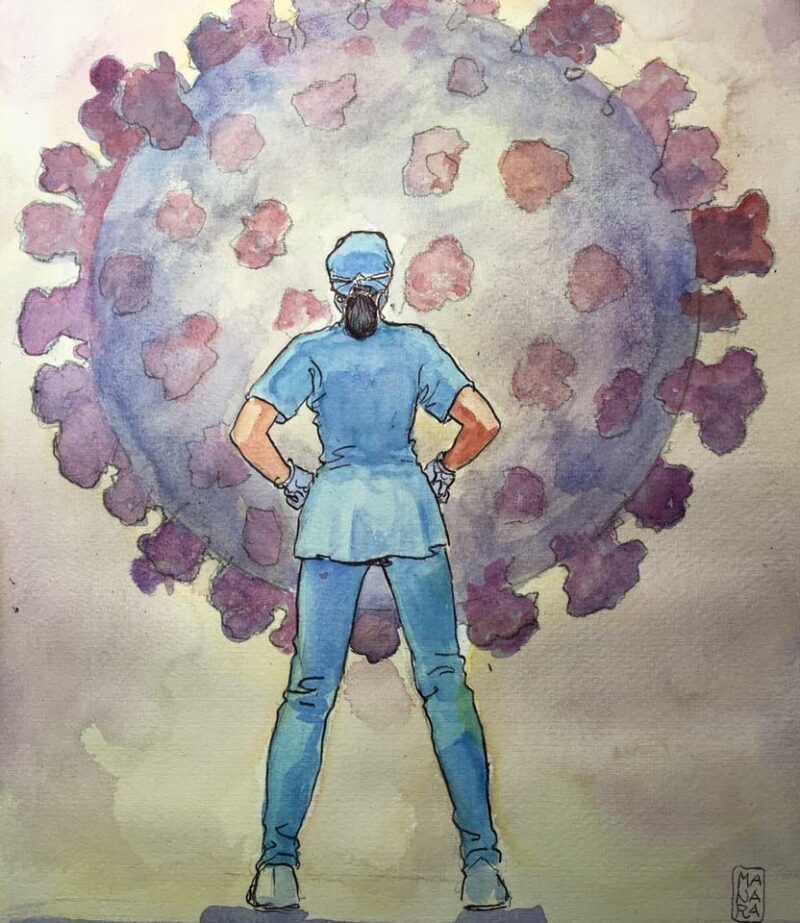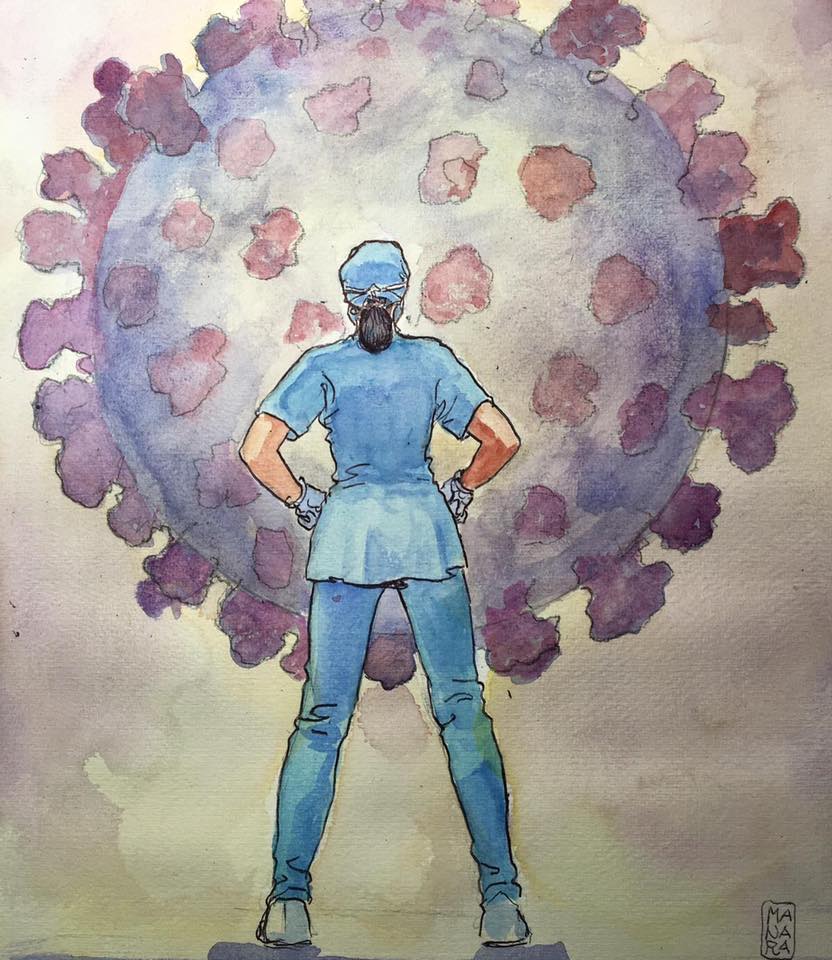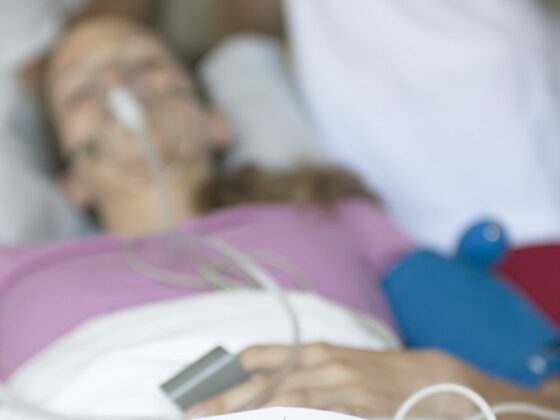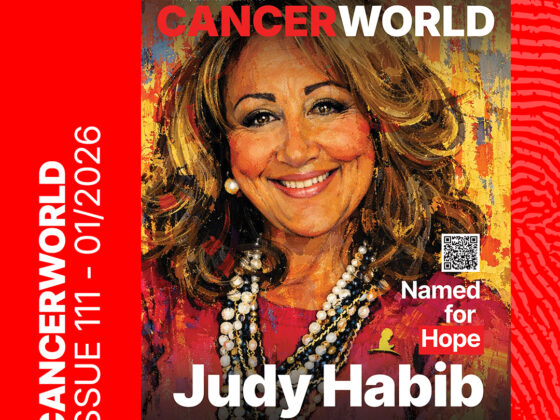As soon as the first analysis of the risk for severe COVID-19 in patients with cancer was published online in Lancet Oncology on February 14th, 2020, it emerged that these patients might have a higher risk of COVID-19 compared to people without cancer. And that a new cancer care routine would have been needed to properly deal with the challenging clinical scenario. Wenhua Liang, The First Affiliated Hospital of Guangzhou Medical University, Guangzhou, China, and colleagues briefly described in the above-mentioned Lancet Oncology paper three major strategies to manage cancer patients during the pandemic.
“First postponing of adjuvant chemotherapy or elective surgery for stable cancer should be considered in endemic areas. Second, stronger personal protection provisions should be made for patients with cancer or cancer survivors. Third, more intensive surveillance or treatment should be considered when patients with cancer are infected with SARS-CoV-2, especially in older patients or those with other comorbidities”, they wrote.
Since then, many papers have been published focusing on if and how to treat cancer patients, how to prevent SARS-CoV-2 infection in these high-risk group and how to minimize risks for patients in need for therapy, surgery or follow up visits.
In a comment published in Nature Reviews Clinical Oncology, researchers from Queen’s University, Kingston, Ontario, Canada, mentioned the precautionary principle as a possible general rule and proposed a framework for prioritizing cancer treatment in the COVID-19 era.
The European School of Oncology, through the interactive webinar The Impact of Coronavirus on Oncological Care (18 March 2020) delivered some key messages on the topic: don’t panic; plan ahead; protect, inform and prepare staff and patients and personalise management of patients. The webinar is available at e-eso.net and the fully reported in an article in Cancer World Magazine.
But at the end of the day, what oncologists should tell their patients, and which approach should be followed to protect them and the whole health workforce from clinical and psychological consequences of Covid-19 pandemic?
On both sides of the Atlantic Ocean, cancer associations and scientific societies are developing guidelines, recommendations and position papers to answer these and other still unanswered questions. Some of these resources are listed below.
THE CLINICAL ONCOLOGY POINT OF VIEW
ESMO, how to deliver optimal care
Covid-19 and cancer is the web page created by the European Society of Clinical Oncology (ESMO) to support cancer medical community and patients during the pandemic.
“ESMO, as the leading professional organisation for medical oncology, continues to support oncology professionals as much as possible by helping them to deliver optimal care to their cancer patients in such exceptional circumstances” ESMO experts wrote in the section dedicated to oncology professionals. Practical advice is given to doctors on how to “ensure the continuum of care, get prepared for a new routine, protect yourself to protect your patients and Reinforce support to patients.
When it comes to guidelines, ESMO has delivered recommendations for different types of cancer that “should be used as guidance for prioritising the various aspects of cancer care in order to mitigate the negative effects of the COVID-19 pandemic on the management of cancer patients” and has developed structured simple care pathways about palliative care in patients with COVID-19. A guide for patients are also available, as well as Key Opinion Leaders (KOLs) experiences from different countries, news in Covid-19, call for collaboration on registries and surveys and links to other useful resources.
ASCO, caring for patients and providers
The American Association of Clinical Oncology (ASCO) has created a section in its website entirely dedicated to Covid-19 and the new coronavirus SARS-CoV-2, the ASCO Coronavirus Resources, continually updated as the situation is rapidly evolving. “ASCO is committed to providing the most current information and resources to its members and the larger oncology community to help ensure that individuals with cancer receive high-quality care” they wrote. In the COVID-19 Provider & Practice Information web page, ASCO experts give clues on different potential challenges related to the pandemic, from the allocation of scarce resources to staff/clinic/centre preparedness, from telemedicine to provider well-being with tips to enhance coping and physical and mental health. A section is dedicated to patient care guidance, getting into details of specific cancer types and therapies and describing the impact of Covid-19 pandemic on the usual care of cancer patients. Among ASCO Covid-19 the possibility to submit coronavirus-related questions to ACO experts and enrol in the ASCO Survey on COVID-19 in Oncology (ASCO) Registry to help collect information on Covid-19 in cancer patients.
INTO CANCER CENTRES and ORGANISATIONS
ECCO, managing the developing situation across Europe
A statement on COVID-19 has recently been released by the European CanCer Organisation’s (ECCO) Board of Directors and it’s now available on ECCO website, within a section dedicated to COVID-19 pandemic.
“Attention is urgently required to protect cancer patients and preserve Europe’s healthcare professional, scientific and patient societies” experts wrote, seeking urgent discussion of their proposals with the European Commission, Members of the European Parliament and National Ministries. The statement is a call to the public but also to national governments, the European Union (EU) and EU decision-makers: all of them have a pivotal role in managing the pandemic. And it’s not just a matter of treatment or drug shortage, as this challenging situation is affecting “the functioning of Europe’s scientific, healthcare professional education and patient association sector”. Together with the statement, many more resources are available, released by ECCO members and Patient Advisory Committee.
NCCN, from cancer screening to stress management
“We are expeditiously providing documents and recommendations developed by NCCN Member Institutions or Guideline Panels as resources for oncology care providers”. That’s what experts from the National Comprehensive Cancer Network wrote in the introduction of their Covid-19 Resources page, reminding that “these resources have not been developed or reviewed by the standard NCCN processes, and are provided for informational purposes only”. The website contains useful information from NCCN members on different aspects of cancer care (e.g., cancer services patient prioritization, communicating changes in the delivery of care, patient scheduling recommendations). Moreover, clues are provided on the treatment of cancer by site, screening, early detection and supportive care, including self-care and stress management for both providers and patients/caregivers.
CCE, Cancer core Europe Consortium
The consortium Cancer Core Europe (the Netherlands Cancer Institute, Karolinska Institute, Institute Gustave Roussy, Cambridge Cancer Center, Istituto Nazionale dei Tumori di Milano, German Cancer Research Center and Vall d’Hebron Institute of Oncology has collected, elaborated and shared the steps top experts have taken, while scientific evidence is still in the making. Their conclusions have been published in an article on Nature Medicine and summarized by the Cancerworld editorial staff in this news piece.
RADIATION ONCOLOGY INSIGHTS
ESTRO, radiation therapy dealing with Covid-19
Radiotherapy could seem far from chemotherapy or other cancer treatments like immunotherapy concerning the negative effects on patients’ health status and the possibility to increase their risks during the Covid-19 pandemic. Nonetheless, the new coronavirus spreading is deeply affecting also radiation oncology, as stated by presidents of the European SocieTy for Radiotherapy and Oncology (ESTRO) in a statement called “Radiotherapy in a time of crisis”. ESTRO Covid-19 Resources cover a broad range of topics for radiation oncologists such as recommendations for radiotherapy technologists (RTT) in the pandemic or a survey on conducting research in Radiation Oncology remotely.
ASTRO, guidance in these uncertain times
Moving to the U.S., the COVID-19 Recommendations and Information page on the American Society for Radiation Oncology (ASTRO) website was created with the aim of becoming a “living document, amenable to regular updates and corrections as we become more familiar with the nuances of COVID-19 as well as learning from and teaching each other: what works and what doesn’t”. A summary of the recommendations for general clinical issues, screening and scheduling is available, together with FAQs, links to useful resources and clinical guidance that can help to adapt institutional policies regarding changes in treatment decisions and workflows during the pandemic.
SEARCHING BY CANCER TYPE
EHA, a virtual information centre for haematologists
It’s called COVID-19 & Hematology Information Center and it represents the effort to support haematology professionals put in place by the European Hematology Association (EHA). “COVID-19, caused by SARS-CoV-2, is expected to be a devastating infection in many patients with haematologic diseases. It should be taken seriously and managed rigorously without jeopardizing the curative chance of individual patients” EHA experts say while giving recommendations for haematologists in COVID-19 crisis. The information centre is also hosting webinars focused on the care of hematology patients during the pandemic, the EHA statement on Covid-19, links to other Covid-19 resources and the possibility to apply for research grants on the new coronavirus infection and to join the Covid-19 Hematology Hub.
IASLC, guiding lung cancer management
“With so many uncertainties regarding resources and the unknown aspects of how COVID affects patients with lung cancer, IASLC members offer perspectives on some of the most timely questions about daily practice” wrote experts of the International Association for the Study of Lung Cancer (IASLC) in their web page Covid-19 and lung cancer, introducing a list of questions on lung cancer patients’ care in the pandemic. Stories from patients and members are hosted as a tool for pooling and sharing knowledge and experiences, together with IASLC Statements, webinars on cancer and Covid-19 and a list of publications in the IASLC Journal of Thoracic Oncology. The section “Other helpful Resources” completes the picture focusing on General COVID-19 Q&A: Facts and Experiences, Guidelines/Recommendations from Other Medical Societies, Information from Government/Non-Government Organizations, Patient Resources and Peer-Reviewed Publications.
AT A GLANCE
Oncology
ASCO – American Society of Clinical Oncology. Coronavirus Resources
ASTRO – American Society for Radiation Oncology. COVID-19 Recommendations and Information
ECCO – European CanCer Organisation. COVID-19 Resources
EHA – European Hematology Association. COVID-19 & Hematology Information Center
EONS – European Oncology Nursing Society. Covid-19
EORTC – European Organisation for Research and Treatment of Cancer. Covid-19 update
ESMO – European Society of Clinical Oncology. Covid-19 and cancer
ESSO – European Society of Surgical Oncology. Statement on Covid-19
ESTRO – European SocieTy for Radiotherapy and Oncology. COVID-19 Resources
IASLC – International Association for the Study of Lung Cancer. Covid-19 and lung cancer
NCCN – National Comprehensive Cancer Network. Covid-19 Resources
ECPC – European Cancer Patient Coalition. ECPC’s communication about cancer and COVID-19
More resources
CDC – Centers for Disease Control and Prevention. Coronavirus (COVID-19)
EMA – European Medicines Agency. Coronavirus disease (COVID-19)
EC – European Commission. Coronavirus response
FDA – Food and Drug Administration. Coronavirus disease 2019 (COVID-19)
WHO – World Health Organisation. Coronavirus disease (COVID-19) outbreak
About the cartoon that illustrates this article: In recent weeks, Milo Manara, one of the most renowned Italian cartoonist, has paid homage to people who are continuing to work and offer vital services despite the health emergency linked to Coronavirus, with a series of drawings published on its social networks.
Milo Manara’s designs are dedicated to healthcare personnel, riders, couriers, law enforcement and supermarket clerks. In addition, the designer has made a short animated video dedicated to hospital staff, at the forefront of the pandemic.













1 comment
Comments are closed.